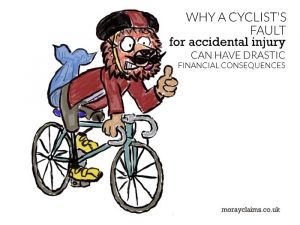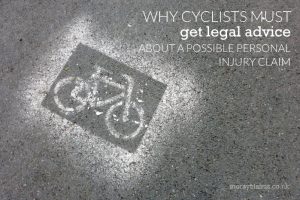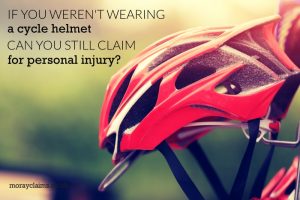Walking and cycling have become more popular during the pandemic. So-called “active travel” has benefits for personal health as well as the environment. Department for Transport figures show that, over the last year, there’s been a 46% increase in the number of miles cycled on British roads. Tellingly, that’s a larger increase than in all of the previous 20 years combined. To take even one corner of Moray as an example... While the Lossiemouth - Elgin cycle path beside the A941 has been an active travel benefit for many years, the long-mooted track to connect Lossiemouth to Hopeman has only recently gained significant traction, despite years of campaigning. Now that the charitable organisation (SCIO) Laich of Moray Active Travel Routes is in existence, and with help from Sustrans, a connection between Lossiemouth and Covesea is coming. Hopefully, the final link from Covesea to Hopeman - to cover places such as the Green Road, Gordonstoun and Duffus - will not be far Continue Reading
Why a cyclist’s fault for an accidental injury can have drastic financial consequences
Ned Ryerson must be one of the most beloved “annoying” characters in film history. He is the insurance salesman from Phil Connors’ past who keeps turning up to bug Phil. He appears at the same point on Phil’s walk from his Punxsutawney guesthouse to Gobbler's Knob, as Groundhog Day repeats over and over again. It’s one of my all-time favourite films – one which includes a happy ending for Ned, as he explains: “I have not seen this guy for 20 years but he comes up to me and then he buys whole life, term, uniflex, fire, theft, auto, dental, health – with the optional death and dismemberment plan – water damage… Phil, this is the best day of my life!” The “optional death and dismemberment plan” may be a joke (maybe it isn’t) but the list of so many different types of insurance illustrates that insurance is varied and can be complicated. And while it’s possible to be over-insured, so it’s possible to be under-insured – and under-insurance is one of the things we’ll look at Continue Reading
Why cyclists must get legal advice about a possible personal injury claim
The volume of water that breaks off Antartica as icebergs each year is greater than the total global consumption of freshwater. And icebergs are pure freshwater. Not for the first time, schemes have been proposed to tow icebergs to hot, water-stressed regions of the world. In Spring 2018, for example, before the rains finally came, the four million people in Cape Town, South Africa, came perilously close to ‘Day Zero’ – when they would run out of water. Though the idea of using icebergs in this way originated as long ago as the 19th Century, no plan has ever been put into action. The idea makes even more sense when you think of icebergs otherwise being “wasted” by melting into the salty seas. Of course, another feature of icebergs is that much more of them lie below the waterline than above. Ships need to be aware that initial appearances are deceptive where icebergs are concerned. In this article, we are going to consider why a superficial approach does not work and why Continue Reading
If you were not wearing a cycle helmet can you still claim for personal injury?
The law in the UK does not require pedal cyclists to wear a helmet. What this means is that you won’t be stopped by the police if you fail to wear a cycle helmet. You won’t be prosecuted under the criminal law. On the other hand, Rule 59 of the Highway Code categorises cyclists as vulnerable road users and advises that cyclists ‘should wear a cycle helmet which conforms to current regulations, is the correct size and securely fastened’. The Highway Code is relevant to both criminal and civil law. Claims for personal injury compensation are civil claims for damages, so the Highway Code is relevant. Many cyclists ride without a helmet. Only just over a third of cyclists using major urban roads wore cycle helmets, according to research findings of the UK’s Transport Research Laboratory in 2008. Equivalent research in Germany apparently showed that only 11 % of cyclists in towns and cities wear a cycle helmet. Cycle helmets have to comply with a European standard. This Continue Reading
Bicycle Accident in Moray – How To Claim For Personal Injury
If you do any amount of cycling, you will probably have had a near miss or two. Cyclists are vulnerable road users and the risk is always there of an accident or collision with a car, lorry or even another cyclist. Moray has a few designated cycle paths, notably the tracks between Elgin and RAF Lossiemouth and between Forres and Findhorn. However, on numerous minor roads in Moray, the national speed limit is combined with narrow carriageways and restricted visibility. Add to this the ever-increasing volume of traffic on our roads and you can see why an increasing number of cyclists are falling victim to injury as the result of a bicycle accident in Moray. If you are a cyclist unlucky enough to be injured in an accident, you may choose to make a personal injury claim so you can receive compensation for your injuries and other losses. It is likely that your bike will be damaged, possibly beyond economic repair, and you will want any compensation to include an element to pay Continue Reading
Bicycle and Motorcycle Accidents Reduction – Thanks to the Weather
Statistics published by the Department for Transport on 01 August 2013 reveal that the number of motorcycle and bicycle accidents on Great Britain’s roads has dropped since last year – something that can probably be attributed to the weather. The Quarterly Provisional Estimates record how many road accidents occur in the four quarters of each year. Experts can then analyse year-on-year trends, helping us to understand what effect the weather has on the safety of our roads. The most recent data makes for interesting reading because it shows the amount of motorcycle and bicycle accidents in the first quarter of 2013 (January to March) has decreased significantly from the same period in 2012. The number of pedal cycle casualties fell by 23% compared to the same period in 2012 while the number of motorcyclist casualties dropped by 27%. So what was the reason for the reduction in the number of accidents? The overall UK average temperature during the first three months of 2013 Continue Reading
Failure to Wear a Cycle Helmet: Can You Still Claim for Injury?
If you are involved in a road traffic accident while riding a bicycle, are you still eligible to make a claim for compensation if the accident was not your fault but you were not wearing a cycle helmet at the time? The answer is very likely ‘yes, you can still claim successfully'. The issue which arises is contributory negligence. No Legal Requirement to Wear a Cycle Helmet Unlike seatbelts in cars, there is no legal obligation to wear a cycle helmet. In theory, this would not prevent a finding of contributory negligence in any event. With seatbelt cases, the introduction of the legal requirement in the 1980s did not affect the various, fixed levels of contributory negligence that had been developed by the courts during the 1970s (and which still apply today). However, there do not seem to be any reported decisions of the courts to date in which a cyclist has had his or her compensation reduced for contributory negligence due to failure to wear a cycle helmet. The English Continue Reading





